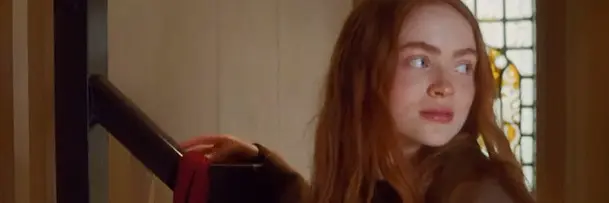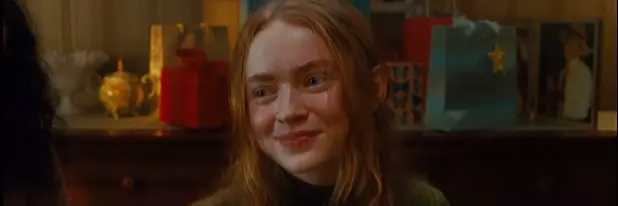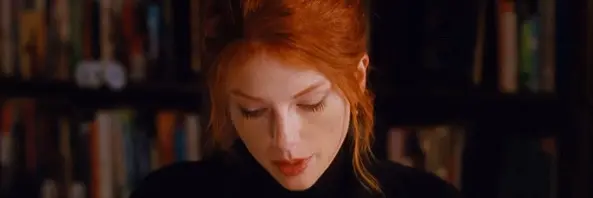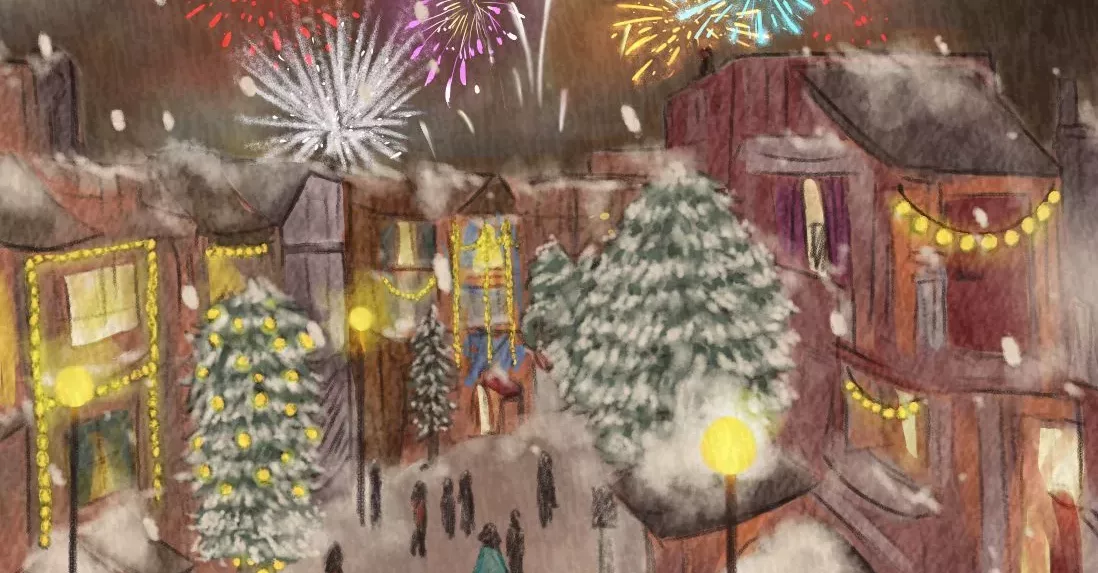“All Too Well” by Taylor Swift: A Love Letter to Heartbreak

Table of Contents
- Reminiscing Innocent Beginnings
- One-Sided Anxiety
- Love, Unbalanced
- The Hurt and the Hope
- The Memento: Purity and Rarity
- Loss and Remembrance
To be in love is a wonderful thing, and yet – to be in a relationship can be one of the most complicated things in the world. Is that always the case, or is the story we know and hear so often just that – experiences we live through that we liken to the songs we love? Few artists can sing the tales of love and hurt in equal parts as Taylor can, and to celebrate and understand love, we ought to know different perspectives of it. We’ll take a closer look and talk about the things that resonate with us, and how Taylor Swift’s songwriting genius speaks of a story we know all too well.
Reminiscing Innocent Beginnings

[Verses]
I walked through the door with you, the air was cold
But somethin’ ’bout it felt like home somehow
And I left my scarf there at your sister’s house
And you’ve still got it in your drawer, even now
Oh, your sweet disposition and my wide-eyed gaze
We’re singin’ in the car, getting lost upstate
Autumn leaves fallin’ down like pieces into place
And I can picture it after all these days
[Pre-Chorus]
And I know it’s long gone and that magic’s not here no more
And I might be okay, but I’m not fine at all
[Chorus]
‘Causе there we arе again on that little town street
You almost ran the red ’cause you were lookin’ over at me
Wind in my hair, I was there, I remember it all too well
S: I’ve watched numerous reaction videos of this song on YouTube (it’s only a slightly unhealthy obsession), and my favourite part by far is when unsuspecting people hear these first lines and get instantly wonderstruck at the riveting imagery. Taylor’s writing is special to me because she is one of those rare artists that can capture exactly how a relationship is made up of several tiny moments of happiness and magic—yes, like leaves in the fall, gently putting together a mosaic masterpiece on the sidewalk.
L: Beginnings can hold so much meaning, and more so in a relationship. Beginnings are deceptively beautiful, as if out of a dream. They can be filled with hope; the fluttering feeling in your heart you can’t place at the smallest things your partner does – the beginnings of love. Taylor’s beginning of this song is a perfect rendition of those untainted memories, as she casts her mind back to the feeling of falling – but a real relationship rarely stays like that. Yet as she sings, it is crystal-clear that she experienced the whole process through and through; few lines in literature are as evocative as Taylor’s description of her partner almost running a red light because the breeze fanning out her hair caught their eye one autumn day. She reminds you of the moments that make you feel that love can be – and is – real.
One-Sided Anxiety

[Verses]
Photo album on the counter, your cheeks were turnin’ red
You used to be a little kid with glasses in a twin-sized bed
And your mother’s tellin’ stories ’bout you on the tee-ball team
You taught me ’bout your past, thinkin’ your future was me
And you were tossing me the car keys, “Fuck the patriarchy”
Keychain on the ground, we were always skippin’ town
And I was thinkin’ on the drive down, “Any time now
He’s gonna say it’s love,”—You never called it what it was
‘Til we were dead and gone and buried, check the pulse
And come back swearin’, it’s the same after three months in the grave
And then you wondered where it went to as I reached for you
But all I felt was shame, and you held my lifeless frame
S: I think the entire fandom took a collective gasp when the new lyrics for the ten-minute version of this song appeared (see in gold above). Fun fact: The ex that this song is (allegedly) about did have a photograph of himself as a bespectacled kid on his Instagram, but after this version of the song came out, Swifties went and spammed the line “You used to be a little kid with glasses in a twin-sized bed,” (yep, no slurs or hate, simply this poetic lyric) on the comments so much that he ended up getting sick of it and taking the post down. Additionally, the line “Fuck the patriarchy,” stirred up some controversy—some claimed that this popular contemporary expression couldn’t possibly have been on a keychain in 2010. Regardless, the message conveyed is universal: The captivating golden boy you miraculously scored for yourself—a man adored by all for his kindness and decency—is inwardly (and perhaps unbeknownst to even himself) just a damaged individual with commitment issues who often can’t see past his own privilege. The relationship plummets from its wondrous high into an increasingly depressing on-and-off period—and your partner? Frustratingly, he remains ever oblivious as to why you’re suddenly so detached.
L: The way Taylor spins her stories carefully and gracefully is paramount to her expression in this song, more prevalent in the ten-minute version – where familiar words take on a new meaning with the words that were previously left out. Through the perspectives of two people (seemingly) in love learning more about each other, we get a glimpse of the anxiety seeping through her magical love story. I don’t think I need to stress on how dreadful it can feel to have to hope for your partner to say the words of love, to not know If they’re feeling the same things that you are. These feelings are tied with the irony of the partner suddenly coming back, ever aloof, after you’d decided to give time to yourself, your well-being and life, and then you’re left with shame trying again because love and anxiety rarely go together with someone who doesn’t give you the effort you deserve. You think of every single time they laughed away something that bothered you, and you were made to feel insignificant and unheard, and your anxiety tells you that this is wrong – right before you allow yourself to be thrown into the trap once more; love and anxiety entwine together, an intricate tightrope dance.
Love, Unbalanced

[Pre-Chorus]
And I know it’s long gone and there was nothing else I could do
And I forget about you long enough to forget why I needed to
S: Perhaps the most daunting part of having to break up is when memories from the relationship materialize when you least expect them—in the supermarket, during a math class at school, at the dead of night when you’re trying to sleep … and your breath catches in a sudden, painful sob.
[Chorus]
’Cause there we are again in the middle of the night
We’re dancin’ ’round the kitchen in the refrigerator light
Down the stairs, I was there, I remember it all too well
And there we are again when nobody had to know
You kept me like a secret, but I kept you like an oath
Sacred prayer and we’d swear to remember it all too well, yeah
S: Forbidden love may be exciting in period dramas, but it’s not so fun in real life when you’re having to constantly remind your partner that your slightly unorthodox relationship is worth the social cost it may pose—and I think as Bangladeshis, a compulsive urge to please our entire extended families, even (and especially) with our choice of partner runs deep in our very being. Not everyone walks into a relationship with an impeccable prior understanding of its terms and scope; regardless of that, needs and desires change over time—tipping delicate scales that were once precariously balanced. And if your partner turns out to be more worried about appeasing society than you, it can eventually lead to the undesirable scenario of them having to make a choice: between one way of life (with you) and the other (without). It is a decision that you’ll never really have a significant say in if you choose to fully respect their boundaries.
L: You contrast a mesmerizing, joyful instance with the bitter realization that taints its memory – that your feelings weren’t equal to theirs after all. To you, they were the promise of togetherness, a blinding and entrancing light you would hold on to forever. To them, you may have been little more than a pleasant company and suddenly taken on far more responsibility and expectation than they bargained for. You are then faced with the pain of acceptance that your partner never equally accepted the responsibility of the relationship and that loss of balance will lead to it breaking apart. Understandings and feelings change in every relationship, romantic or otherwise, and they are a sign of growth – but if the foundation begins on (arguably) shaky grounds and a lack of acceptance towards human developments – the only thing to do afterwards is to find the strength to forgive yourself when it’s over.
The Hurt and the Hope

[Bridge]
Well, maybe we got lost in translation, maybe I asked for too much
But maybe this thing was a masterpiece ’til you tore it all up
Runnin’ scared, I was there, I remember it all too well
And you call me up again just to break me like a promise
So casually cruel in the name of bein’ honest
I’m a crumpled-up piece of paper lyin’ here
’Cause I remember it all, all, all
S: Ever given your all to a relationship that felt really special and important to you—only to realize the other person only ever liked the idea of you … until they didn’t? And then they proceed to discard you like you were just a sudden thought scribbled out on some torn notebook paper. And you’re left desperately trying to straighten out the creases they left in their careless wake and—yeah.
L: In line with unbalanced love, Taylor continues her ballad with the self-doubt she faced, lamenting the continuous downfall of her relationship with herself. In neglectful relationships, we might be scared to ask for anything at all because the other side will always make it seem like too much – even if all we’re asking for is to have our feelings acknowledged. She encapsulates this trauma perfectly, along with how we hope beyond hope to make it work by cutting ourselves off, even when we aren’t at fault. All that, only to not even be considered a significant part of their lives, in the end, thrown away and forgotten like lost words they never bothered to remember.
They say all’s well that ends well, but I’m in a new hell
Every time you double-cross my mind
You said if we had been closer in age, maybe it would’ve been fine
And that made me want to die
The idea you had of me, who was she?
A never-needy, ever-lovely jewel whose shine reflects on you
Not weepin’ in a party bathroom, some actress askin’ me what happened
You, that’s what happened, you
S: On her RED album tour at the age of twenty-two, Taylor performed this song countless times and broke out in tears every single time. Her anguish was palpable, and it rippled through the audience—And these new revelations certainly explain why. We’ve all met our share of thirty-year-old men who like to hit on barely-adult girls, pretending they’re serious—and then leave them high and dry within a few months. If you’re especially unfortunate, your partner will make up flimsy excuses, frame himself as a hero sparing you from himself, or yourself as the reason for the relationship’s demise—a dangerous process of offhand gaslighting that will chronically feed off your insecurities, making you question everything you ever thought you knew. Desperate to salvage the remnants of what you can only remember as unbearably warm and secure, you try (and miserably fail) to become this unattainable, unbreakable, perfect partner … to a person that never truly deserved you.
The Memento: Purity and Rarity

[Verses]
You who charmed my dad with self-effacing jokes
Sippin’ coffee like you’re on a late-night show
But then he watched me watch the front door all night, willin’ you to come
And he said, “It’s supposed to be fun turning twenty-one”
Time won’t fly, it’s like I’m paralyzed by it
I’d like to be my old self again, but I’m still tryin’ to find it
After plaid shirt days and nights when you made me your own
Now you mail back my things and I walk home alone
But you keep my old scarf from that very first week
’Cause it reminds you of innocence and it smells like me
You can’t get rid of it, ’cause you remember it all too well, yeah
[Chorus]
’Cause there we are again when I loved you so
Back before you lost the one real thing you’ve ever known
It was rare, I was there, I remember it all too well
Wind in my hair, you were there, you remember it all
Down the stairs, you were there, you remember it all
It was rare, I was there, I remember it all too well
S: It’s heartwarming to read comments from dads about this song, emotional at the thought of navigating their daughters’ future (or past) romantic hurdles. Taylor’s words definitely pack a punch, her tone almost accusatory as she calls out her ex on his own hypocrisy. I don’t think I’ve ever read a more accurate description of healing from a breakup than having to find your old self again, slowly detangling the parts that were deeply intertwined in a shared life with another. Willing yourself to loosen your exhausted (but unrelenting) grip on all the time and effort you invested into a future that will never exist; moving on from the habitual devotion towards someone you thought might be yours … that has looped around and led only back to you. It’s an unforgiving process, regret disguised as unwillingness, and the only thing that really and truly has the power to revive you is the passage of time. Innocent beginnings is a recurring theme in “All Too Well”, along with its stark contrast with the ugly aftertaste of a sour ending.
L: Recovery is a long and agonizing walk with yourself – even more so following a traumatizing, toxic, traumatizing relationship that has left you in pieces ripped from a shared being. You can feel the struggle in her words as she sings for the self she lost in her partner and the emptiness hollowing itself into her heart. Yet as much as we’d like, we can’t go back in time to the way things were before, nor live the life we lived with a past version of another. To do so would be to deny everything we felt, the love and pain both; to do so would be to deny ourselves growth. The red scarf has become a timeless motif of innocence, the part of her he took away, and every time she goes to look for it, all she finds are the footsteps he left as she walks back the same roads. Recovery isn’t finding the person you once were, but picking up the pieces that survived to build a person that acknowledges everything you went through –accepting that love can be real without it being right for you, and that holding on so tightly despite this sometimes only delays the final outcome, further compounding your pain. Recovery is growth – a process of further recognizing your personal needs and priorities and knowing when to let go in the future; a break that allows yourself to flourish on your own to experience love for yourself before loving another.
Loss and Remembrance

[Outro]
And I was never good at tellin’ jokes, but the punch line goes
“I’ll get older, but your lovers stay my age”
From when your Brooklyn broke my skin and bones
I’m a soldier who’s returning half her weight
And did the twin flame bruise paint you blue?
Just between us, did the love affair maim you too?
’Cause in this city’s barren cold I still remember the first fall of snow
And how it glistened as it fell, I remember it all too well
S: Taylor did not sugarcoat in the rerelease of this song. The jab at her ex has aged remarkably well, with his track record of dating more twenty-year-olds—and not necessarily short-term. I don’t think anyone has the capacity to feel empowered while emerging from the ashes of a failed long-term relationship, but simply affirming that you did everything in your power is a significant advance towards acceptance. You might feel broken, but really you are a wounded warrior, ready to begin recovering. You might feel isolated in your heartbreak, dizzy with questions about whether your partner—former partner—feels the same way. Frustrated, claustrophobic, agitated, you scream at the stormy sky, you talk to the walls of your room (still infinitely wiser than actually contacting your toxic ex, who is probably even less ready than you are to have a mature conversation). In retrospect, the early days of your relationship feel almost humble, so bittersweet—like freshly fallen snow, glittering spotless just before it gets trampled, tarnished.
Just between us, did the love affair maim you all too well?
Just between us, do you remember it all too well?
Just between us, I remember it (just between us) all too well
Wind in my hair, I was there, I was there (I was there)
Down the stairs, I was there, I was there
Sacred prayer, I was there, I was there
It was rare, you remember it (all too well)
S: And just like that, the tone transforms from intense desolation to quiet reflection. The structure of the song is reminiscent of a good cry—Stray thoughts congregate, escalating into a panicked crescendo, and then slows, calms, and settles into gradual contemplation. The oddly therapeutic, hollow silence after a big release that leaves fragments of some made-up conclusion repeating in your head, like a broken record with the volume turned down—white noise that will softly lull you to sleep. One step closer to a new beginning.
L: Even in recuperation, the past does not leave you. You do not forget the parts you lost or the touch of the one you loved with your soul. The final dive into the emotions is slow, more mellow, and the hurt echoes through your tears as you choose to let yourself rest. In finality and letting go, Taylor has crafted a gem of storytelling and expression. You think of them all the time, but they do not matter any longer; and they are to fade away as the song does, to leave you alone with yourself. It’s scary, it hurts, and you remember it all, but you can’t move on from something you can’t remember. In trauma, you realize that remembrance can bestow power – that accepting the loss of self will give you the space to accept the new parts you find walking forward.







“Recovery is growth – a process of further recognizing your personal needs and priorities and knowing when to let go in the future; a break that allows yourself to flourish on your own to experience love for yourself before loving another.”
Labib, I cannot express how big a fan I have become of your words. You are a brilliant writer, and your mind amazes me. I hope to see you doing great things in the future in this field.
And Sabiha’s words are relatable as ever! Anyone raising an eyebrow on “Fuck the patriarchy” was ignorant until now (and may still be), period. But I loved how you articulated the message that it conveyed- “just a damaged individual with commitment issues who often can’t see past his own privilege.” I choked on how accurately put this was.
Overall, a brilliant article. I am so proud of this, so proud of you two. Keep writing, you two. Whether it’s on your own time or yet another collab, I am here for it!
This was such a brilliant article!
Loved reading this. This song is an absolute gem and I loved how you guys dissected it perfectly. A very thought-provoking read too! Waiting for more write-ups from yall! :’)